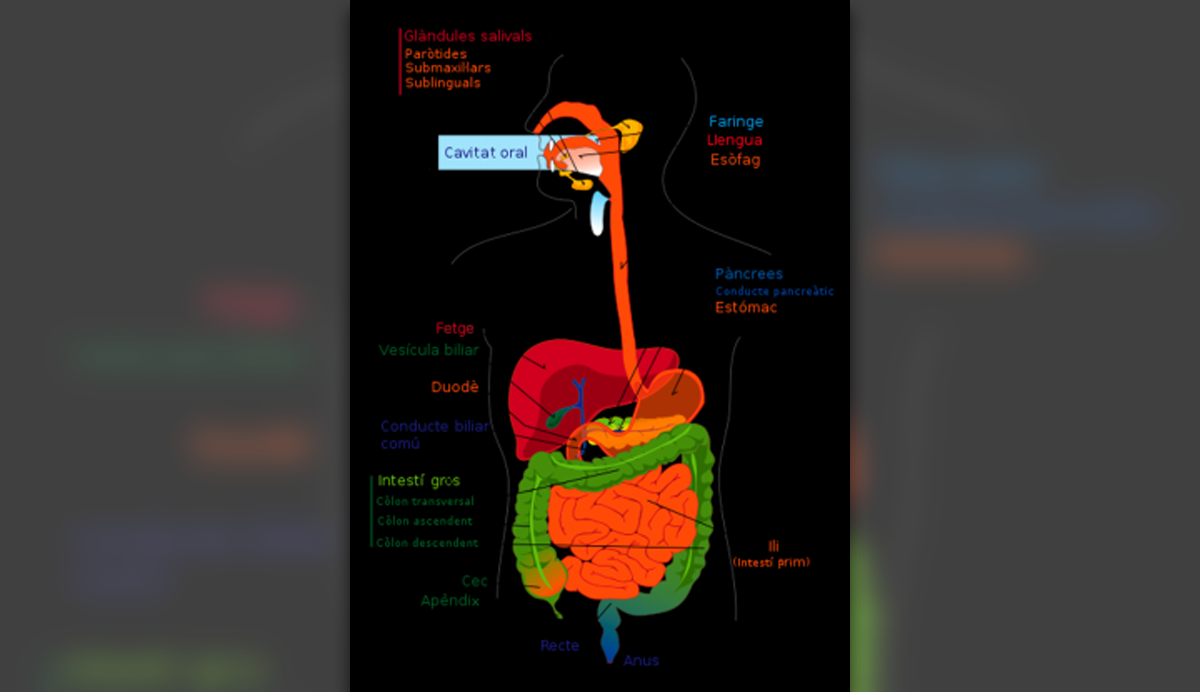
Digestion is a process of mechanical and chemical breaking down of food into smaller packets. The purpose is to process the food in such a way to make it possible to be absorbed into the blood stream and carried to different parts of the living tissues. The chain of digestion starts at the moment when the food enters the mouth. It is first mechanically broken down by teeth, and chemically processed by the chemicals in saliva. The food then travels down the esophagus into the stomach, where the digestive acids and enzymes kill the remaining microorganisms and break down the food into finest components. The final product of digestion is known as chyme. Chyme goes through the small intestine, where the major part of nutrient absorption occurs, then through the large intestine, and finally it gets excreted during defecation.
Digestive enzymes
Digestive enzymes play a significant role in human digestion. They are able to break down polymeric macromolecules into their smaller building blocks. This way, humans are able to absorb the nutrients from the foods. Digestive enzymes are found in the digestive tract, especially in the saliva, in the stomach, in the pancreatic juice and the intestinal secretions.
Types of digestive enzymes
Digestive enzymes are classified by their Differing functions. The classification of digestive enzymes is complex and involves a lot of sub-classifications, but the main types fall into four principle groups. Proteases and peptidases break down proteins into their monomers, the amino acids. Lipases break down the fats into three fatty acids and a glycerol molecule. Carbohydrates break down the carbohydrates into sugars. Nucleases break the nucleic acids into nucleotides.
Uses of digestive enzymes
Digestive enzymes are very important and the human body can’t maintain proper metabolic function without them. However, the human body progressively loses its ability to produce enzymes. Major drops happen roughly every ten years of life. The lack of digestive enzymes in the body sometimes occurs as an effect of poor eating habits. Eating a lot of processed food puts the human body (especially the pancreas) at too much stress, endangering the normal immune function.
The loss of natural enzymes becomes noticeable when one discovers that he or she cannot tolerate or enjoy certain foods like before. Running low on enzymes often manifests together with a reduction of stamina, heartburn, gas, constipation, bloating, allergies, ulcers and reduced function of the immune system.
Digestive enzyme supplements are often used to replenish natural levels of enzymes needed to digest protein, fat and carbohydrates. They can reduce the stress on the pancreas and fill up the digestive enzyme deficiency. Most of them are made of animal and plant enzymes and well tolerated by the body.

















Your thoughts on this
Loading...